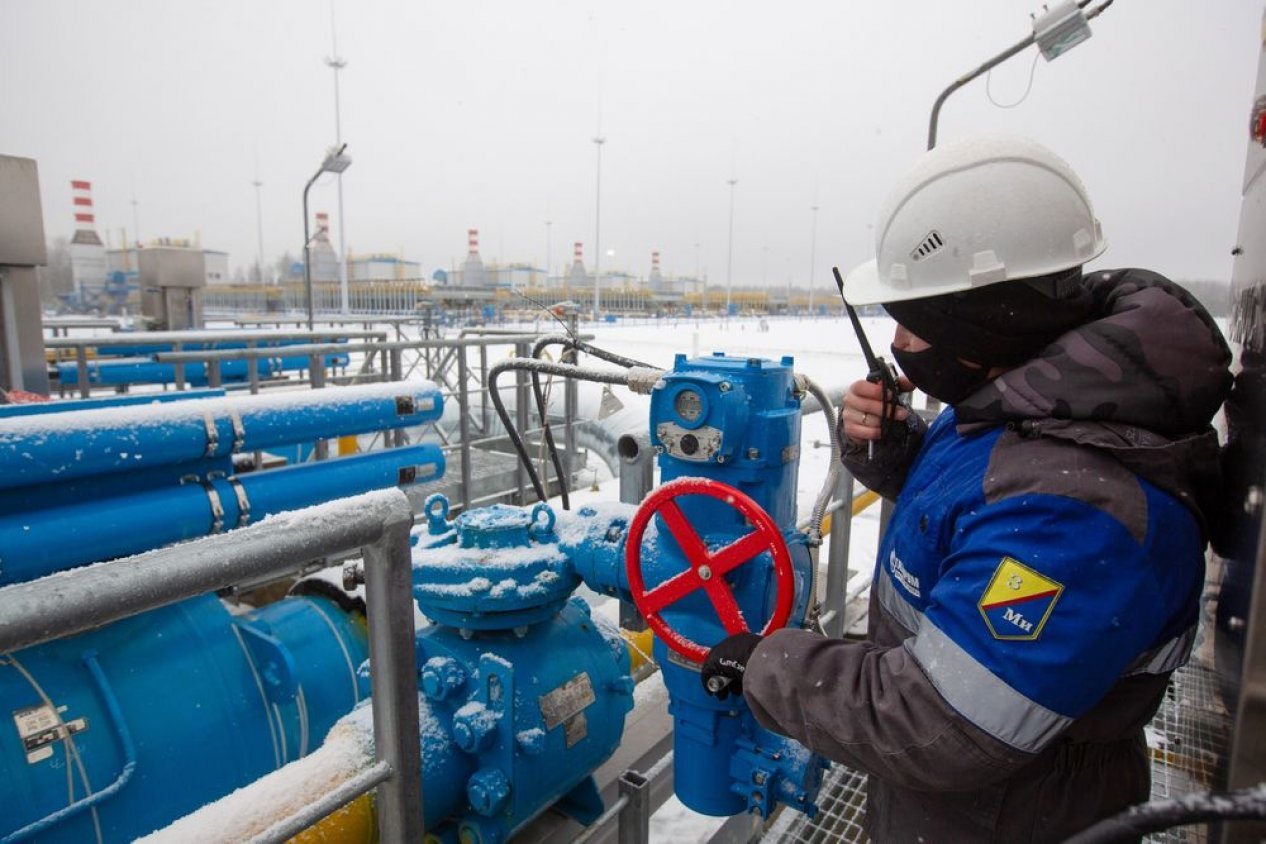
Bloomberg, the global leader in business and financial data, news and insight, in an article entitled ‘Europe Sleepwalked Into an Energy Crisis That Could Last Years’ touched upon the gas crisis in the European region. Analysts at Wood Mackenzie estimate that Europe’s storage sites are only 56% full, more than 15 percentage points below the 10-year average. Due to the current situation, gas reserves in storage may fall to 15% by the end of March. (Source)
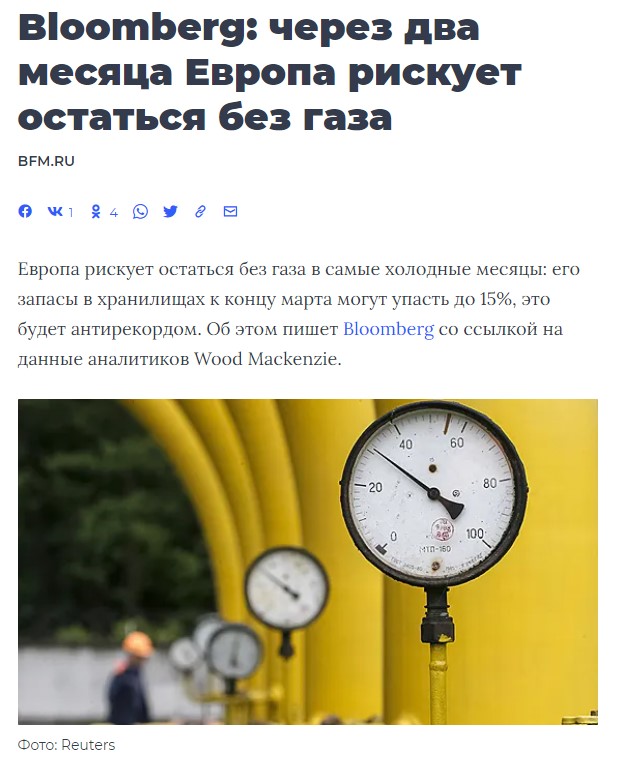
The authors of the article note that the dominance of Russia in the gas supply to Europe is currently preserved, while Gazprom plays a key role in the supply of fuel through traditional transit pipelines and Nord Stream 2. Depletion of reserves requires Russia to build up additional export potential. In fact, this situation is favorable for Russian gas corporations, which in December raised the price of 1,000 cubic meters of natural gas to $1,000, and Gazprom, which controls the vast majority of the gas industry, doesn’t exclude an increase in transportation at new tariffs.
Gazprom accounts for over 70 percent of Russia’s 600 billion cubic meters of gas and supplies 40 percent of the European natural gas market. On the whole, Russia’s share in the European gas market is 48 percent. The fact is that Gazprom’s refusal to conclude additional contracts on the spot market and its unwillingness to increase gas supplies also had a significant impact on the growth of gas tariffs in the European region. If more gas is added to the European market, this could lead to lower prices. Independent analyst Alexander Sobkon believes that Gazprom not only wants to pay off the existing tariffs, but also wants additional tariffs for new spot contracts. As a result, serious tensions for Europe are possible. (Source)
Faktyoxla Lab. has tried to study the conclusions made by Bloomberg, as well as other experts and assess the role of Azerbaijan in this regard.
The increase in gas demand is the change in global demand over the past year. After a severe coronavirus pandemic, global economic recovery resumed in 2020 from the first quarter of 2021, including economic recovery in the EU region, especially the expansion of production after a one-year contraction of industrial and energy complexes. Naturally, the need for fuel has increased. Apparently, the Russian Federation, which lost tens of billions of dollars in oil and gas revenues during the pandemic, wants to seize this opportunity. EU experts, who do not exclude the use of energy resources by Russia for political purposes at different times, consider reducing dependence on Russian gas and increasing the throughput capacity of the Southern Gas Corridor as the most reliable and long-term guarantee of future energy security.
Thus, in the future, Europe intends to buy more fuel from other exporting countries - Oman, Indonesia, Malaysia, as well as Norway, Algeria, Qatar, Kazakhstan, Turkmenistan and Azerbaijan - in exchange for gas supplies from Russia. The Gas Exporting Countries Forum (GECF) has repeatedly discussed issues of diversification of gas pipelines to the European Union, construction and connection of new transit lines. Forum Secretary-General Mohamed Hamel said that in the future, it is possible to increase gas exports to Europe. (Source)
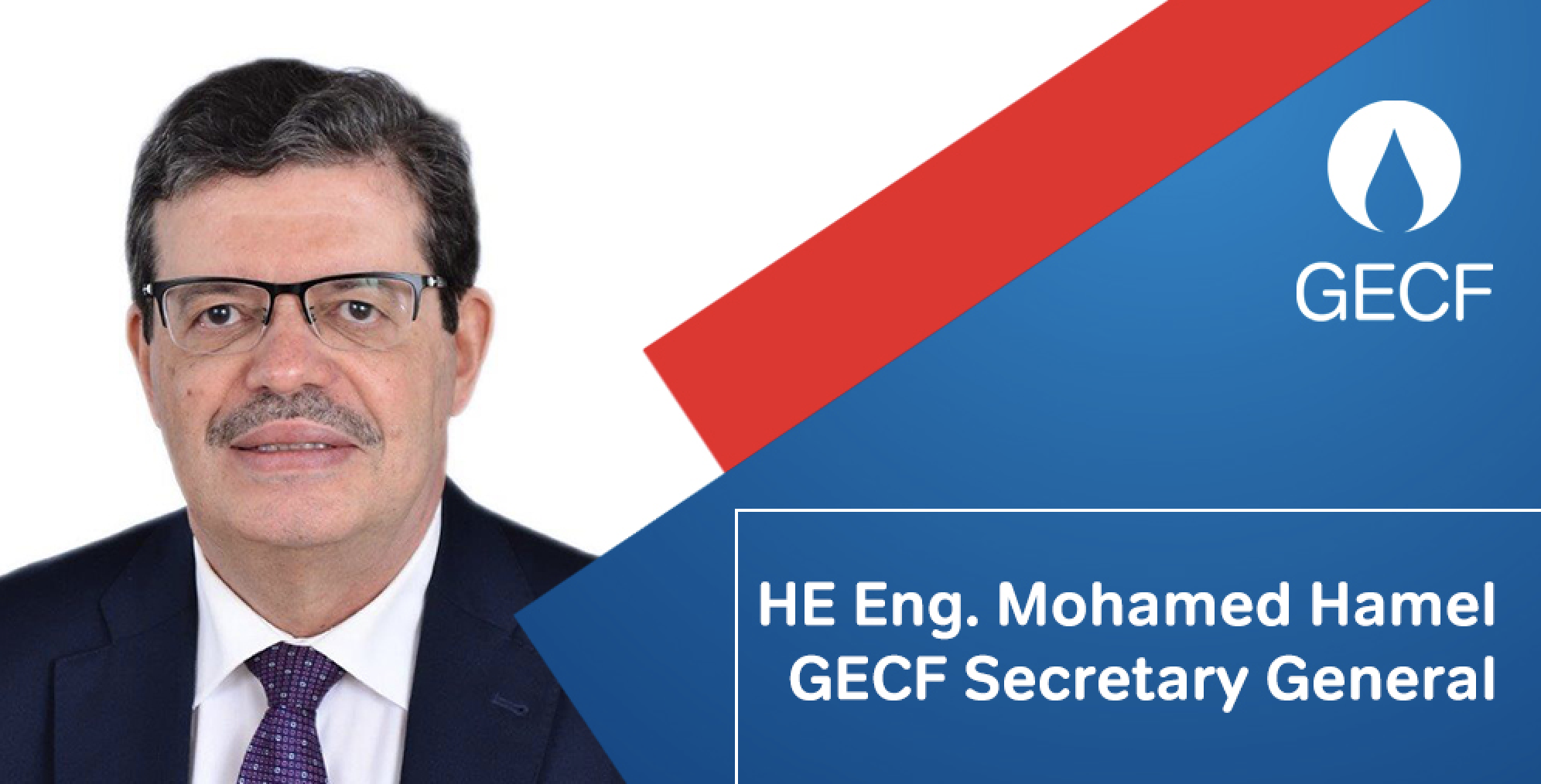
The European Union also pays special attention to the Southern Gas Corridor, sponsored by Azerbaijan, and seeks to expand this project as a key link in the future of reliable fuel supplies. The article ‘Bad News For Russia, As Gas From Azerbaijan Now Flows To Western Europe,’ published in the January 6, 2022 issue of Forbes, reads that the gas produced by Azerbaijan from the Shah Deniz field under the Southern Gas Corridor project (SGC) is supplied to Italy’s Melendugno point on the Adriatic coast. According to the author, the first good news is the transportation of 10 billion cubic meters of gas a year to Europe via a 3,500-kilometer pipeline. Due to the increase in the capacity of the project, in the near future there will be a significant change in the gas supply to the European Union. (Source)
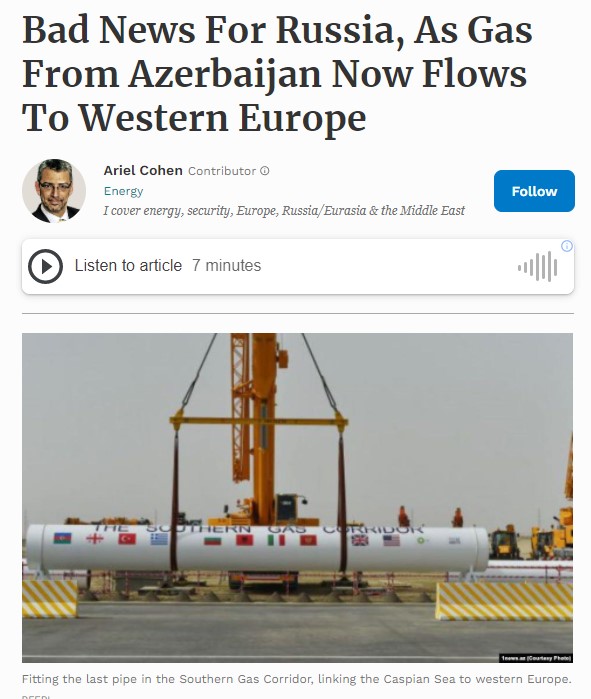
Are Azerbaijan’s gas reserves sufficient to be part of Europe’s energy supply for many years?
According to expert estimates, Azerbaijan has sufficient gas reserves in the Caspian region, and the proven reserves are estimated at 2.6 trillion cubic meters. This volume, together with domestic demand and exports, will last for at least 100 years. From this point of view, there is no doubt that Azerbaijan will be a gas supplier to the European Union for almost a century.
The fact is that the probable reserves in the promising structures "Babek", "Nakhchivan", "Zafar-Mashal", "Umid", "Araz-Alov-Shark" and "Shafag-Asiman" located in the Azerbaijani sector of the Caspian Sea are more than 2.6 trillion, creates a solid foundation for the formation of reserves. (Source)
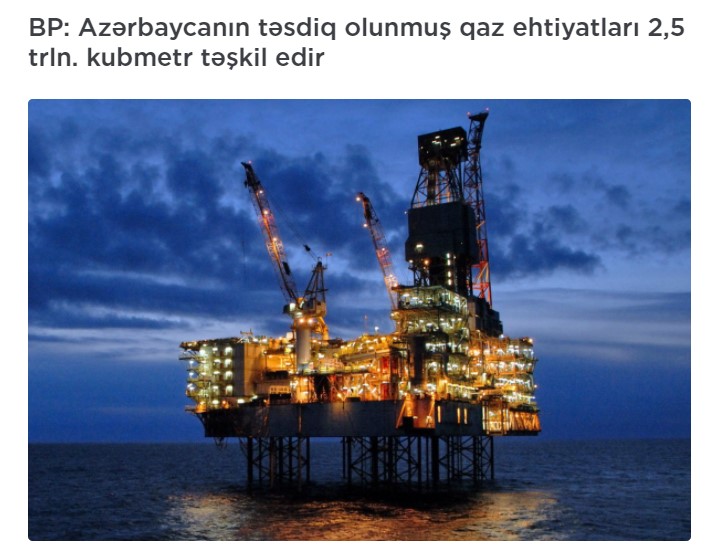
The reality is that Azerbaijan plays an important role in ensuring the energy security of Europe by pursuing a diversified energy policy. Azerbaijan, which has become a reliable partner in the European market over the past 15 years, actually entered the EU gas market on the last day of December 2020, putting into operation the last part of the Southern Gas Corridor - the Trans Adriatic Pipeline (TAP). In 2021, Azerbaijan exported 7-8 billion cubic meters of gas to the European region. (Source)
The sixth summit of the European Union’s Eastern Partnership Program, held in Brussels on December 15 last year, was dedicated to the growing role of Azerbaijan in the EU’s gas supply. In an interview with the Spanish newspaper El Pais, Azerbaijani President Ilham Aliyev confirmed that Azerbaijan’s export policy is directed towards the West and that the country will play an important role in supplying energy to the EU.
“The fourth segment of that project, the Trans-Adriatic Pipeline was commissioned on 31December 2020. Since that time, our exports to Europe started. Before that, our exports were going primarily to Turkey and to Georgia. So, now among recipients of our gas the biggest is Italy among EU countries, Greece and Bulgaria. And there is a potential to expand the geography. This year we already exported to the EU, more than 7 billion cubic meters of gas. Next year we plan 9, in 2023 we plan 11, and it can grow. But of course, you know that the gas market is different from oil market, you need to have contracts. All the gas which we now extract for export have been contracted before we inaugurated the pipeline. So, that is how gas business works. Therefore, for us in order to plan increase of production, or to plan cooperation with new members of EU, we need to engage in negotiations, on practical level, and to evaluate the potential of that party, evaluate the connectivity of gas infrastructure systems in Europe,” Ilham Aliyev said. (Source)
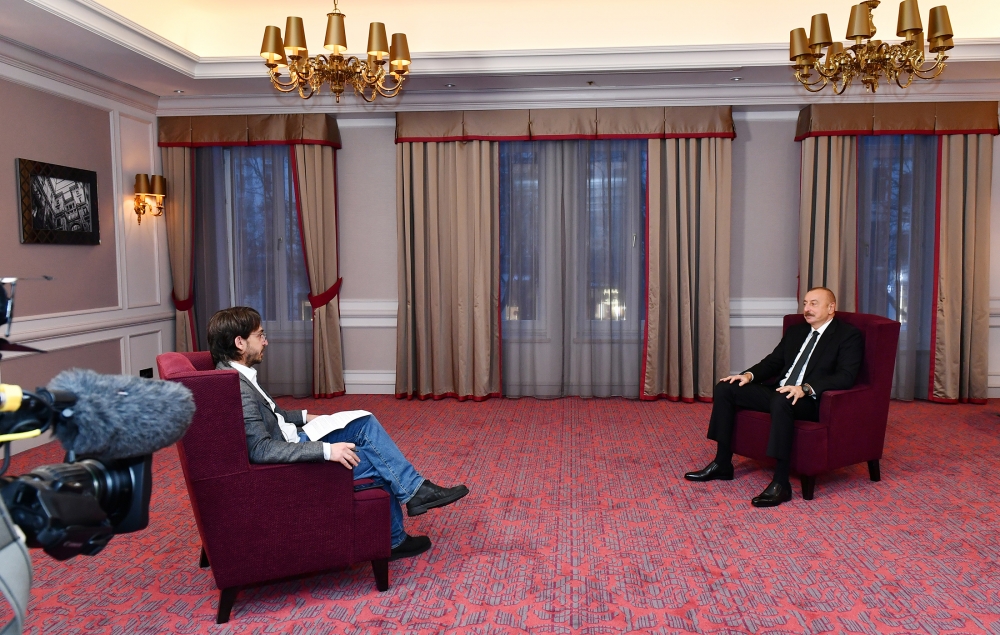
In an interview with the Italian Il Sole 24 Ore newspaper at the end of December, the president of Azerbaijan stressed that the country is ready to increase gas exports to European countries, and there are opportunities to increase exports. Quote: “But in order to increase the production we need, of course, to invest and in order to do that we need to have contracts with consumers. So, the contracts first, investments second and gas third. This is the consequence of the stages of the process. But we are ready, as you said. We have future deposits, brand new modern infrastructure, with potential interconnectors to other destinations in Europe.” (Source)
The annual increase in gas production provides the country with both domestic demand and access to new export markets. According to forecasts, gas production in the country will increase by 40% in 2022-2025, and the annual capacity of the TAP gas pipeline, through which gas will be transported to Europe, will reach 20 billion cubic meters. These figures and forecasts will also increase the gas potential of Azerbaijan.
Azerbaijan says it can increase natural gas exports to Europe. The Bloomberg article notes that the EU will become the second largest importer of Azerbaijani natural gas in 2021. Research is underway. (Source)
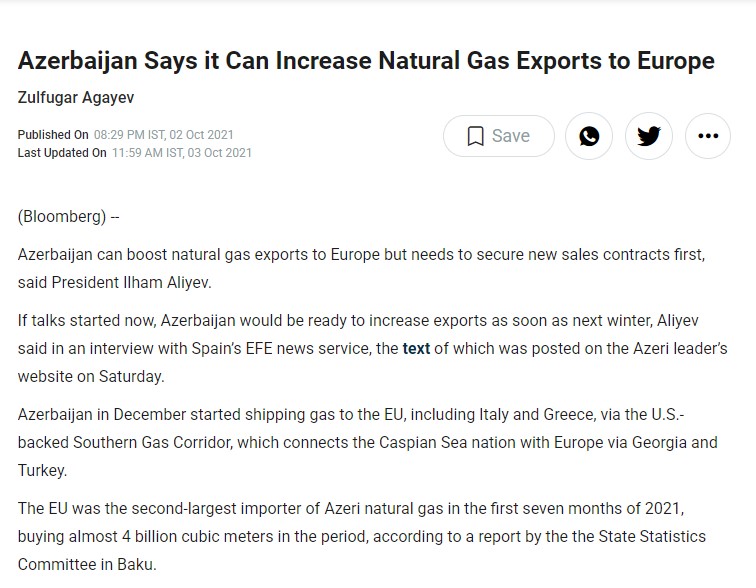
This means that there is a good opportunity to sign new gas agreements with the EU, and Azerbaijan is determined to use these opportunities. On the other hand, one of the most important points is that Azerbaijan has stated that in the coming years it will satisfy a significant part of the needs of some EU member states.
The reality is that the European Union, which attaches great importance to the Caspian region as a rich source of fuel, thanks to the leadership of Azerbaijan, will allow other countries in the region - Turkmenistan, Uzbekistan, Kazakhstan and even Iran to join the Southern Gas Corridor. The EU intends to create a diversified gas transit network from several directions - Africa-Asia-Middle East, Central Asia-Caspian Sea and completely eliminate the inequality in the market, which is currently dominated by Russia. (Source)
By the way, an article published a few days ago by the Iranian news agency IRNA contained opinions on the actualization of the geographical transit from the Persian Gulf to the Caspian Sea to ensure gas equality in the world. The author notes that the proximity of the Caspian region to the main gas consumption markets in Asia and Europe and the rich gas reserves of the Caspian Sea can change the distribution of world gas supplies. The reality is that global oil demand is declining and natural gas consumption is increasing. China and India, the main gas consumers in Asia, are intensively negotiating with other gas producers to supply their gas. The EU countries rely on several energy sources, the most profitable and promising of which is the Caspian region. In this regard, the demand for gas suppliers in the Caspian region - Turkmenistan, Kazakhstan, Azerbaijan and Iran - is growing. While Turkmenistan currently supplies most of its gas to Asian markets, joining the Southern Gas Corridor is becoming increasingly important. The gas agreement signed between Azerbaijan, Iran and Turkmenistan at the Economic Cooperation Organization summit in Ashgabat in November 2021 also allows this to be done. In the future, the normalization of relations between Iran and Europe could speed up the transportation of the gas resources of the Caspian region to the larger EU markets.
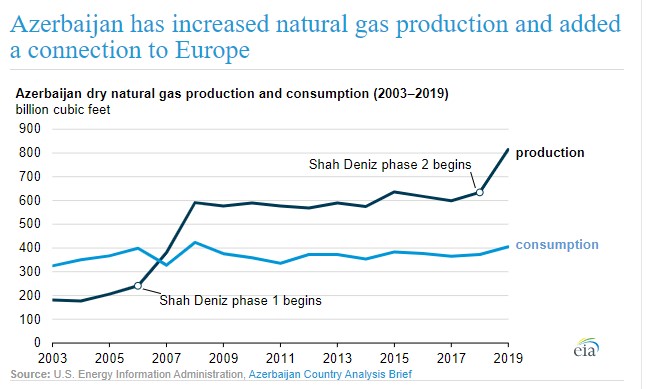
So, the importance of the Caspian region in gas supply to Europe is growing, as well as the reputation of Azerbaijan as a leading country in the transportation of Caspian gas resources to the West. EU energy experts also recognize that Azerbaijan, as a proactive and vanguard country in the Central Asia-Caspian region, has a mission to transport the region’s fuel resources to the West. Export statistics and geography of recent years confirm that both the volume of energy resources transferred by Azerbaijan to Europe and the number of recipient countries are expanding. (Source)
Geoeconomic analysis shows that Azerbaijan bears the responsibility and burden of transporting large volumes of fuel from the Caspian region to the West. Azerbaijan can transport to Europe not only its own resources, but also the resources of the Caspian states. In short, Azerbaijan is also an economic power that can connect the region with the West.




















